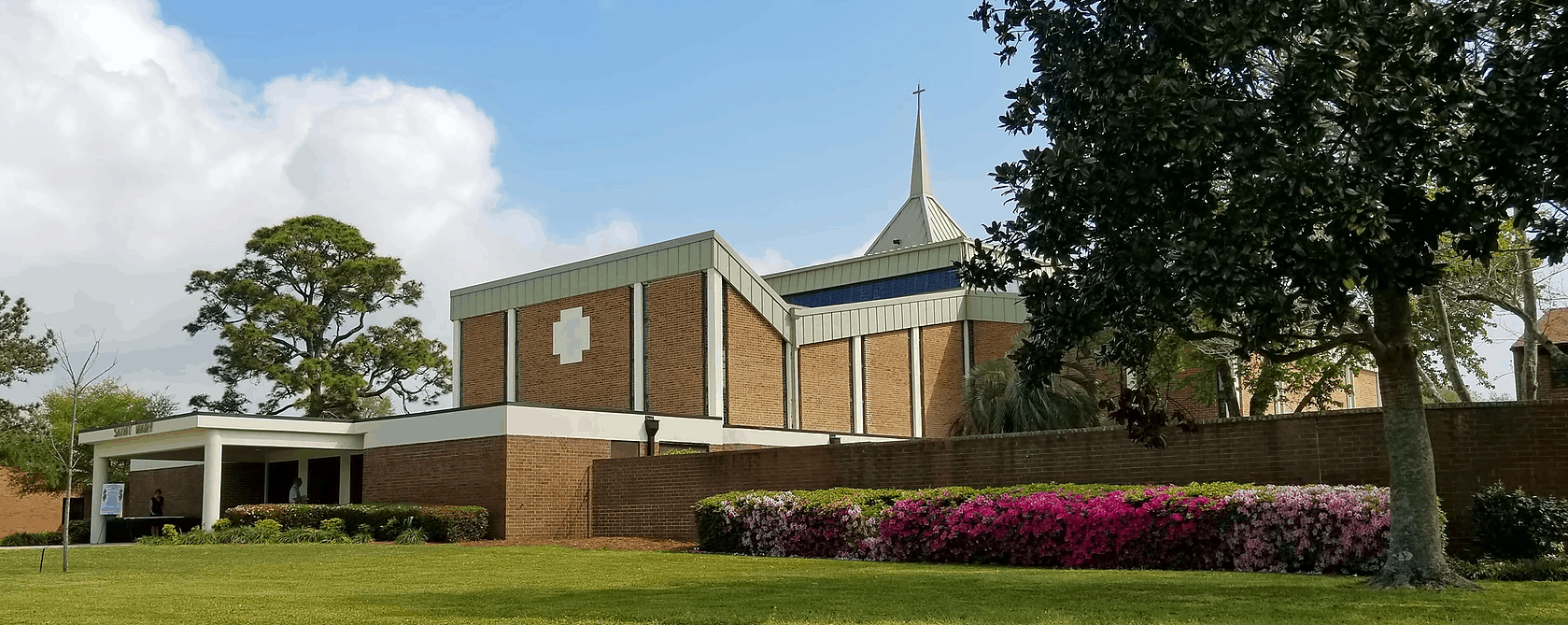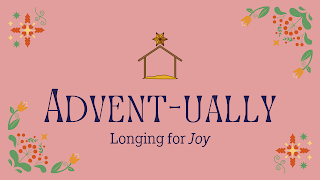Advent-ually Week 3: Longing for Joy
Advent-ually Week 3: Longing for Joy
3rd Sunday of Advent
This is the third week of our Advent homily series, Advent-ually. Eventually Christmas will get here, and this Sunday signals that we are close. Today is the third Sunday of Advent, or Gaudete Sunday, as we call it in the Church. We use the color rose this Sunday to remind us to stay joyful because it’s almost here. Gaudete is a Latin word meaning rejoice or be joyful. The truth is we all have this longing for joy.
We begin today by looking at the letter of Saint Paul to the Philippians, and he begins with one of those hallmark greeting cards scripture passages that you may be familiar with; or that you see hanging up like in your grandma’s house; or maybe at a hobby lobby. It says, “Rejoice in the Lord always,” which seems pretty simple.
But when you dive into those two things: -REJOICE- -ALWAYS- , it can seem pretty hard to rejoice always! We may even ask: Rejoice? Always? Even when things are hard? When I am or feel broken? When I’m sad? Even then, I’m supposed to rejoice?
And then the other part which is, “…in everything, make prayer and petition…” In everything! We have talked a lot about prayer over the last year, because prayer can be hard and time consuming if we let it. I would love to spend all day in front of the Blessed Sacrament in prayer. I’d love to just dive into scripture and really root myself in prayer but I have things I need to do. I have a job and need to work to make a living to take care of my family. I have got to study for the big test. There’s all kinds of things that I need to do.
The passage continues and Paul says “…with thanksgiving, make your requests known to God.” As Americans, we aren’t supposed to ask for help. We are supposed to be able to do it all on our own. Asking for help can be a sign of weakness, or so our pride tells us. But Paul makes it abundantly clear here that if are to rejoice in the Lord, we must pray and make petitions to God, to ask for His help. It takes humility to admit we need help, but it’s by prayer, thanksgiving, and humility that we find joy.
So many of us are seeking fulfillment and happiness. We want something more. We can’t always identify it but yet we also feel this heaviness with life. And just to be clear, there are very real mental health struggles that many of us face with anxiety and depression that require medical intervention therapy counseling, and those things are important and critical. If you find yourself in a medical state of depression or anxiety, I think generally, there are those of us who struggle with that. But generally there’s this other layer on top of it of, just this heaviness and feeling that I want to be joyful, I want to be happy, but we don’t always know how to find that. So we seek it in things.
Advertising companies certainly know that we have this longing so they advertise products that we are told will make us a better version of our self. What advertising is really trying tell us is that we can buy joy. If you do this thing, or if you buy this product, or if you get this item, you will be happier and more fulfilled. Sometimes it’s couched in terms of organization, that just being more organized will you make you happy. Or this item will make us look better or feel better. Or if you are more entertained you will be happier.
What people are selling us is a solution to the problem of why we lack joy but the solution can’t be found in those things. It’s found in God through prayer, thankfulness, and humility.
In another passage, Paul tells us to pray without ceasing. To do that is to be mindful of God’s presence. Prayer is communion with the lord and sometimes we think of prayer as a very formalized thing. Formalized prayers like the rosary and divine mercy chaplet are fine, but if they do not bring us into a personal relationship with God they may not be helpful.
Prayer is communion and communication with the lord and we can communicate and commune with Him in different ways that we can’t always through spoken word. Prayer is to become mindful of God’s presence in all aspects of our lives. We are always in the holy presence of God. To simply be mindful of God’s presence itself is to enter into prayer. The Psalmist said there is no place we go that we escape God’s presence, so to pray unceasingly is to be mindful of that, which leads to gratitude.
Thankfulness, or gratitude, is when we recognize that all things are a gift from God. It can be hard to be grateful because in our world we become trained to look at the things we do not have. If I pick up my phone I look at social media and see what other people have. I see it in news stories on TV or social media. We even see what our friends have and we get jealous because we compare ourselves to others.
We are trained to because by training you to be jealous of other people you will then want buy it. Consider the impact that has on you and on me especially as we go towards Christmas. There has been a big push on sales and buying stuff since Black Friday or before! A news report I read the other day said that people will buy themselves more stuff than they will for others. Why is that? Because we’re seeking something! But to know that God is present with me means all things are gifts which I can be grateful for, and by that, gratitude grows exponentially in our hearts. As I become grateful, as I start to thank the Lord, my mind starts to see other places that God has blessed me, other areas where I can be grateful.
But gratitude is only possible when we are humble. Humility helps me to recognize these things as a gift that comes from outside of myself. God doesn’t have to give them to me but God chooses to give them to me and how can I not be grateful for the things that God chooses to give me that I don’t deserve.
We read today that John the Baptist baptizes Jesus. It’s a critical moment in Jesus ministry; a necessary moment. John the Baptist knows he is not worthy to Baptize Jesus and yet it’s a gift Jesus allows John to baptize him. Not because Jesus needed to repent of sins or be forgiven of sins, but because that’s the moment that inaugurates Jesus’ mission and the sacrament of baptism, and John gets to be a part of it. John acknowledges he’s not worthy and neither am I, and yet God allows me to have a participation in the work that He is doing. How could I not be humbled by that, and then grateful for that, and to be mindful that none of that is possible without God’s presence in my life.
If you want to be joyful brothers and sisters, then you have to stop looking at what you don’t have; you have to stop looking at what other people have; you have to stop being envious of what other people have; and you need to start looking at what God is doing in your life right now.
We all have family and friends who could use joy. So invite them to Christmas Mass this year. It would be a great way to live out the Bishop’s letter. Not all of us are comfortable yet praying in front of people or in sharing our story, so the next best thing is to invite someone to Mass with you, and especially at Christmas. And if they can’t come to mass with you or if they don’t feel comfortable yet, invite them to join us online on Facebook or YouTube. Watching online first may help them to know what they are being asked to come to and to feel more comfortable.
So what’s the key to joy this Third Sunday of Advent? To pray unceasingly; to be grateful for what God is doing and has done and will do; and to be humble enough to recognize that we don’t deserve it and we can’t earn it, but that it is through God’s great love that we have it.


